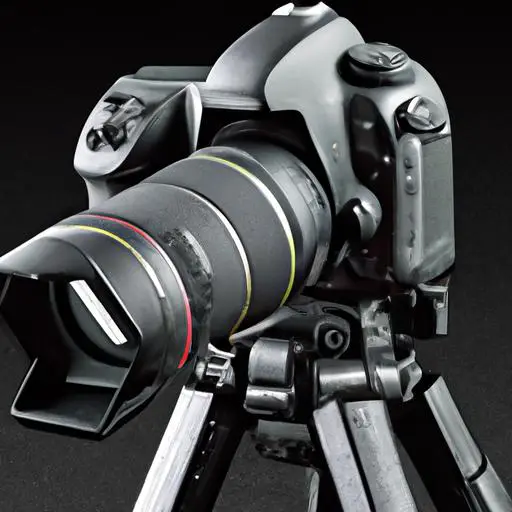Are you trying to decide whether to switch to a mirrorless camera and bring your DSLR lenses with you? If youre a photographer looking to upgrade your camera system, you may be wondering if DSLR lenses will work with a mirrorless camera.
The answer is yeswith the right lens adaptor.
In this article, well discuss what DSLR lenses and mirrorless cameras are, the advantages and disadvantages of using a DSLR lens on a mirrorless camera, and what to consider when choosing a lens adaptor.
By the end, youll have a better understanding of whether or not DSLR lenses are compatible with your mirrorless camera.
Table of Contents
Short Answer
Yes, some DSLR lenses can work on mirrorless cameras using an adapter.
However, the functionality of the lens may vary depending on the camera model and the type of lens.
Additionally, most DSLR lenses are not designed specifically for mirrorless cameras, so they may not be as effective or produce the same quality of image as they would on a DSLR camera.
What Are DSLR Lenses?
DSLR (Digital Single-Lens Reflex) lenses are specialized lenses used in cameras to capture images.
These lenses are designed for use in DSLR cameras, which have a mirror and prism system that reflects light from the lens to the cameras viewfinder.
This allows the photographer to view the exact image that will be captured by the camera.
The lenses are designed to be interchangeable, meaning that different lenses can be used to capture different types of images, from landscapes to portraits.
DSLR lenses come in a variety of sizes, from wide angle to telephoto, and can be used for both still photography and video.
They are typically made of high-quality glass, and are optimized for use in DSLR cameras.
What Are Mirrorless Cameras?

Mirrorless cameras are a relatively new type of digital camera that has been gaining in popularity among photographers.
Unlike DSLR cameras, which use a mirror to reflect the light entering the lens up to the viewfinder, mirrorless cameras rely on a digital sensor to capture the image.
This allows for a much smaller and lighter camera body that is ideal for travel and street photography.
However, the lack of a mirror also means that the camera needs to focus the lens on its own, relying on contrast detection autofocus.
This makes them a great choice for capturing fast-moving subjects and shooting video.
What Is An Adaptor?
An adaptor is a device that allows a DSLR lens to be used on a mirrorless camera.
It provides a physical connection between the two components, and in some cases, can also provide an electrical connection that allows the camera to control the aperture and autofocus of the lens.
The adaptor essentially acts as a bridge between the two components, allowing a user to use the lens they already have with a different camera body.
Adaptors come in a variety of shapes and sizes and are designed to fit the specific mount of the lens and camera.
The lens mount is the type of connection that the lens uses to attach to the camera, and each manufacturer has its own unique mount.
When purchasing an adaptor, be sure to check the specifications of the camera and lens to ensure that the adaptor is compatible.
Adaptors can also provide a number of additional features, such as aperture control, autofocus, and image stabilization.
However, these features vary from manufacturer to manufacturer, so it is important to check the specifications of the adaptor before purchasing.
In addition to providing a physical connection between the lens and camera, adaptors can also provide an electrical connection which allows the camera to control the aperture and autofocus of the lens.
This can be a great option for those who are looking to use their existing lens with a different camera body.
However, it is important to note that not all adaptors have this functionality, so it is important to check the specifications of the adaptor before purchasing.
Finally, it should also be noted that some manufacturers make their own proprietary adaptors that are designed to work only with their specific lenses and cameras.
These adaptors are often more expensive than third-party adaptors, but may provide better compatibility and performance.
Are DSLR Lenses Compatible With Mirrorless Cameras?

The short answer is yes, DSLR lenses can work on mirrorless cameras with the use of an adaptor.
Mirrorless cameras are becoming increasingly popular, so its natural to want to use the lenses you already own on them.
However, its important to check your cameras specifications to make sure your lens and adaptor are compatible.
Mirrorless cameras are designed differently than DSLR cameras, so using an adaptor is necessary for compatibility.
An adaptor allows the lens to physically fit on the camera, but it does not enable any electronic communication between the two.
This means that the camera will not be able to control the aperture or autofocus, and the user will need to manually adjust the settings.
Adaptors come in a variety of shapes and sizes, depending on the type of lens being used.
Some are designed for specific lenses, while others are more universal.
Its important to check the specifications of the adaptor and lens to make sure they are compatible.
Additionally, some adaptors may support additional features, such as image stabilization or electrical contacts.
When using a DSLR lens on a mirrorless camera, its important to remember that the lens will need to be manually operated.
This means that the user will need to adjust the focus and aperture manually, as the camera will not be able to do so automatically.
Additionally, some features, such as autofocus, may not be available.
In conclusion, DSLR lenses can work on mirrorless cameras with the use of an adaptor.
However, its important to check the specifications of the lens and adaptor to make sure they are compatible.
Additionally, the lens will need to be manually operated, as the camera will not be able to control the aperture or autofocus.
With the right adaptor and lens, you can use your DSLR lenses on your mirrorless camera.
Advantages Of Using A DSLR Lens On A Mirrorless Camera
Using a DSLR lens on a mirrorless camera offers a range of advantages, such as increased image quality, better low-light performance, and access to a wider range of lenses.
Image quality is improved because DSLR lenses have a larger image circle than mirrorless lenses, which allows for a larger area of the frame to be exposed to light.
This creates a larger and more detailed image, as well as a shallower depth of field for a more artistic look.
Additionally, DSLR lenses are often made with better quality glass than mirrorless lenses, which reduces chromatic aberration and other image distortions.
DSLR lenses also offer better low-light performance.
Because they have larger apertures than most mirrorless lenses, they are able to capture more light and detail in low-light situations.
This makes them ideal for night photography, as well as other low-light scenarios.
Finally, DSLR lenses provide access to a wider range of lenses than mirrorless lenses.
Because they have been around longer, there are more DSLR lenses available than mirrorless lenses, and they come in a variety of styles, sizes, and focal lengths.
This gives photographers greater flexibility and control when taking photos.
In short, using a DSLR lens on a mirrorless camera offers a range of advantages, including increased image quality, better low-light performance, and access to a wider range of lenses.
It is important, however, to make sure that the lens and the adaptor are compatible.
Disadvantages Of Using A DSLR Lens On A Mirrorless Camera

Although DSLR lenses can work on mirrorless cameras, it is important to note that there are some disadvantages to doing so.
One of the main drawbacks is that the camera will not be able to control the aperture or autofocus.
This means that you will need to manually adjust the aperture and focus on your lens in order to get the desired results.
Additionally, some adaptors have varying levels of compatibility, so its important to check your cameras specifications to make sure your lens and adaptor are compatible.
Another disadvantage of using a DSLR lens on a mirrorless camera is that you may experience vignetting, which is when the edges of your image appear darker than the center.
This is due to the difference in sensor sizes between DSLR and mirrorless cameras.
Additionally, using a DSLR lens on a mirrorless camera can result in a decrease in the overall image quality due to the lack of communication between the lens and the camera body.
This can lead to a softer image or even a decrease in sharpness.
Finally, using a DSLR lens on a mirrorless camera can also limit your ability to take advantage of the high-speed autofocus and image stabilization features that many mirrorless cameras offer.
This is because these features are often not available with DSLR lenses.
In some cases, you may not even be able to use the lens at all.
So, if you are looking for the best performance from your mirrorless camera, it is best to stick with lenses designed specifically for mirrorless cameras.
What To Consider When Choosing A Lens Adaptor
When it comes to adapting lenses, its important to choose the right adaptor for your camera and lens.
Not all adaptors are created equal and some may be incompatible with certain models.
Its always a good idea to check your cameras specifications to ensure that your lens and adaptor are compatible.
When choosing an adaptor, youll want to make sure that its able to fit the lens securely and that it supports the lenss features.
Some adaptors are able to support autofocus, image stabilization, and other features, while others are not.
Additionally, youll want to make sure the adaptor is made of high-quality materials and is designed to last.
Youll also want to make sure the adaptor is designed for your specific camera model.
There are many different types of adaptors available and some may not be compatible with your camera.
For example, an adaptor made for a Canon 5D Mark IV might not be compatible with a Sony Alpha a7R III.
Finally, youll want to make sure that the adaptor is compatible with your lens.
Not all lenses will work with a particular adaptor, so its important to check the specifications of your lens and adaptor before purchasing.
By taking the time to carefully consider these factors, youll be able to choose the right lens adaptor for your camera and lens.
Final Thoughts
With the right lens adaptor, DSLR lenses can be used with mirrorless cameras to create stunning images.
However, its important to check the compatibility of your lens and adaptor to ensure you get the most out of your equipment.
Whether youre a professional photographer or an amateur looking to expand your camera capabilities, understanding the advantages and disadvantages of using a DSLR lens on a mirrorless camera is key to making the right decision.

